Children's and youth literature from the Netherlands and Flanders in German translation
It is no coincidence that publishers in Austria pay particular attention to children's and youth literature from the Netherlands and Flanders. Children's literature from the Dutch-speaking countries is known abroad for being open, honest, full of humour and very poetic, and is currently enjoying enormous success in German-speaking regions.
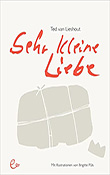
Dutch-language children's and youth literature is not only coveted in the German-speaking world. Children's and youth literature accounts for approximately 40 percent of all titles translated from Dutch, and it is highly appreciated. The list of authors from the Netherlands and Flanders who have received the German Children's Literature Award is long: Guus Kuijer, Ted van Lieshout, Els Pelgrom, Maritgen Matter, Bart Moeyaert, Do van Ranst, Joke van Leeuwen, Edward van de Vendel, and Dolf Verroen.
Slow start
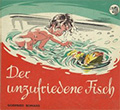
The success story of Dutch-language children's and youth literature in the German-speaking world began in the 1950s with Godfried Bomans, an author who primarily wrote for adults, but whose imaginative stories for children (Das Lokomotivchen [The Small Locomotive], 1954; Der unzufriedene Fisch [The Discontent Fish], 1953) opened the door for following translations of Dutch-language children's and youth literature in the German-speaking world. Another important event in the 1950s was the discovery of Marten Toonder, known for his stories about Tom Puss and the bear Ollie B. Bommel, and Dick Laan, whose stories about 'Pünkelchen' were enthusiastically received by young readers.
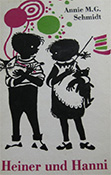
In the 1960s Annie M.G. Schmidt and Miep Diekmann were discovered in the German language area. Annie M.G. Schmidt, who received the Hans Christian Andersen Award in 1987, was the best known Dutch author of children's and youth literature at the end of the 1950s. She made her debut in the German language area with Heiner und Hanni (Jip and Janneke) and the stories of 'Wiplala' and 'Abeltje'. Miep Diekman, known for her open approach of themes such as eroticism, violence, death, politics and discrimination, shaped the perception in the German language area with her realistic novels for young people in the late 1950s and early 1960s.
An example from the Dutch-speaking countries
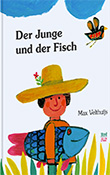
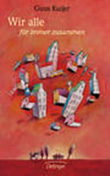
In the 1970s, children's and youth literature from the Dutch-speaking regions reached a level of recognition in Germany, Switzerland and Austria that adult literature to date has not yet reached: it became a model for German-speaking authors. This was due in part to the success of the creator of Miffy (for more information see miffy.de), Dick Bruna and Max Velthuijs, the author of Der Junge und der Fisch [The Boy and the Fish], whose work was translated into more than 25 languages. Successively authors such as Annemie and Margriet Heymans, Marjan Roodt, Rie Cramer, Thea Beckman, and not to forget Guus Kuijer, whose work was awarded the German Children's Literature Award not only in 1982 for Erzähl mir von Oma [Tell me about Nana] but also in 2002 for Wir alle für immer zusammen [All of us Together Forever], conquered the market in the German language area. It took a while, but nonetheless, at the end of the 1970s, Dutch-language children's and youth literature became the role model in the German-speaking world. The time between the publication of the original and its translation became shorter and shorter, the number of publications per author higher and higher.
In the 1980s, children's and youth literature from Flanders also gained popularity in the German-speaking world. This period saw the discovery of the works of Paul Kustermans and Henri van Daele, followed by translations of the work of Johan Ballegeer, Gaston van Camp, Gerda van Cleemput, Ed Franck, Mieke Vanpol, Katrien Synaeve, and, last but not least, translations of the work of Anne Provoost and Bart Moeyaert, who have become fixed stars of Dutch children's and youth literature.
Courage for anarchy
Authors of children's and youth literature from Flanders and the Netherlands are "warm-hearted and cheeky, show a nerve for anarchy, humor and wit" wrote Deutschlandfunk in 2016 (Seiss, 2016). Children's and youth literature from the Netherlands and Flanders is uncommon, which seems to be an integral part of its current success in the German-speaking world. Around 40 titles have appeared annually over the last ten years. Not only Paul Biegel, who along with Tonke Dragt and Thea Beckmann is one of the great storytellers for young people, has enjoyed great success, the younger generation also receives due attention. This applies also to authors of exciting detective and adventure stories such as Paul van Loon, Simon van der Geest and the highly successful author of thrillers for young people, Mel Wallis de Vries. Popular reads are the survival tips ('Wie überlebe ich ... ' ['How do I Survive ...']) by Francine Oomen, the work of Martha Hensen (disturbed family relationship, mourning), the "hymn-like" story Eisvogelsommer [Kingfisher Summer] (2016) by Jan de Leeuw (death, mourning), the work of Marjolijn Hof (fear of loss, courage, responsibility, self-doubt) and last but not least the work of Ted van Lieshout, who does not stop at confronting young readers in the German language area with themes such as abuse and paedophilia.
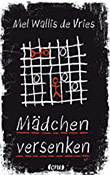
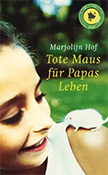
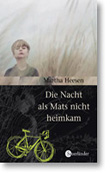
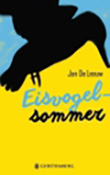
"Success has many fathers, as the saying goes. Certainly, the Netherlands were much more progressive than Germany early on regarding children and youth. That was also reflected in literature. I think in terms of progressiveness we Germans have caught up. But what still counts is the continuously high quality and diversity of Dutch-language children's and youth literature." (Rolf Erdorf in Ericke-Keidtel, 2016)
Not for nothing
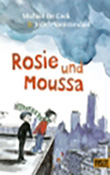
Just as in the days of Bruna and Velthuijs, readers in Germany, Austria and Switzerland are particularly interested in the work of illustrators. Guido van Genechten, Annemarie van Haeringen and Mies van Hout are currently very successful. In the German-speaking world, people are convinced of the power that comes from the interplay of illustrations, language, tension and humour in children's and youth literature from the Netherlands and Flanders. The reviewer of the Frankfurter Allgemeine Zeitung for example, is "completely mesmerized" by the interplay of the illustrations by Judith Vanistendael and the text by Michael De Cock in Rosie und Moussa (Lenz, 2013).
"As if fresh out of a surprise package"
Dutch literature for children and young people continues to captivate its audience, "as if fresh out of a surprise package", as Edward van de Vendel's Was ich vergessen habe [What I Forgot] (2008) puts it. In recent years, Joke van Leeuwen, Toon Tellegen, Edward van de Vendel and Bart Moeyaert have received particular attention in the German language area.
Joke van Leeuwen
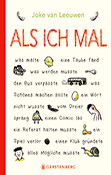
Joke van Leeuwen, who not only writes but also makes illustrations herself, was discovered in the German language area at the end of the 1980s. The first translations of her work were published by Sauerländer, but her breakthrough came with Deesje macht das schon [Deesje Will Manage], the story of the unusual but imaginative Deesje, which was translated by the famous translator Mirjam Pressler (Anne Frank and others) and awarded the German Children's Literature Award a year later. "Deesje is just as spritzy and turbulent as it is labyrinthine and oppressive" (Arbeitskreis Jugendliteratur). Als mein Vater ein Busch wurde und ich meinen Namen verlor [When My Father Became a Bush and I Lost My Name] (2010) was also highly regarded. An important and "a poetic, thought provoking book about war and what it does to the people involved" (Joke van Leeuwen, 2002).
Toon Tellegen
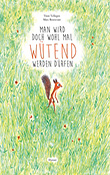
Toon Tellegen debuted in the German-speaking world with the pen name Anton Tellegen as early as 1987 with the translation of De dood van tante Miesje (Ich war fünfzehn und zum Glück gross für mein Alter [I Was Fifteen and Luckily Tall for My Age], 1987), the story of a child whose traumatic experiences during the war continue to dominate its life. But the breakthrough only came about at the beginning of this century. Tellegen's book about the "most complicated father in the world", Josefs Vater [Joseph's Father], appeared in 2006 as a paperback with DTV, the 'trilogy' Ich wünsche [I Wish], Ich denke [I Think] and Ich sollte [I Should] was published by Mixtvision in Munich, and Hanser published Tellegen's books for young "hot heads" (Hanser) Man wird doch wohl mal wütend werden dürfen [One Can't Avoid Getting Mad Now and Then] (2014) and Wird denn hier keiner wütend? [Is no One Getting Mad?] which, according to Die Welt, could achieve "the status of a modern classic" (Perlentaucher).
Edward van de Vendel
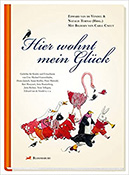
Just like the work of Guus Kuijer, the work of Edward van de Vendel is appreciated in the German language area for its fine humour and the lightness with which the author writes about feelings, without becoming sentimental (c.f. Menzel, 2010). Van de Vendel made his debut in the German-speaking world at the beginning of this century with the "bittersweet lovestory" Spring, wenn du dich traust [Jump if You Dare] (2001). Van de Vendel's start in the German language area was a difficult one. The Coming-Out of Tycho and Oliver was well received, but also received criticism. Sometimes Van de Vendel is a bit too "narcissistic" and fails at "dampening his exuberant ideas for the benefit of the narrative", commented Ralf Schweikart in Die Zeit (Schweikart, 2002), but then things suddenly went very fast. After 2007 Van de Vendel conquered the German market. Every year one or more of his titles appeared in German translation. With Superguppy the publisher Boje even started a new series with poems (Gedichte für neugierige Kinder [Poems for Curious Children]) in 2007. "Simple" and "mastered", a "high point" judged the Süddeutsche Zeitung (Lettner, 2009). In 2016, Edward van de Vendel received a prize for Der Hund, den Nino nicht hatte [The Dog, That Nino Didn't Have] (2015), "Text and illustrations [have merged] into an entity" (Arbeitskreis Jugendliteratur, 2016).
Bart Moeyert
Bart Moeyaert's first book appeared in 1993, the year that the Netherlands and Flanders hosted the Frankfurt Book Fair for the first time. (#Fairs) The book was immediately convincing: "Subtle psychological tension in the thicket of pubescent emotions, literarily concentrated in regard to style and narrative" judged the jury and nominated Küss mich [Kiss Me] for the German Children's Literature Award. The prize itself was not long in coming. In 1998 Blosse Hände [Bare Hands] (1997), an "impressive" story about "violence and counter-violence" (bud, 1998) was awarded the German Children's Literature Award. After that, Moeyaert was definitely the new star in the firmament of Dutch-language children's and youth literature in the German language area. The Salzburger Nachrichten enthusiastically wrote:
"Bart Moeyaert has what it takes to bring explosive topics that directly affect young people to their hearts. He does this without any pedagogical zeal, but writes stories that are so exciting that the readers allow themselves to be drawn into them, absorb the unbelievable with red ears and realise with shock at the end that it is actually about themselves" (Six best books, 2000)
In 2016 Bart Moeyaert, who in the meantime had established a strong connection with the German language area and who, just like Edward van de Vendel, also translated children's and youth literature from German into Dutch, became artistic head of the Flemish-Dutch presentation at the Frankfurt Book Fair. During this event he once again demonstrated his talent as a bridge builder, not only between different forms of literature (for young people/adults, poetry/prose/theatre) but also between literature and other forms of culture such as dance and music.
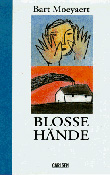
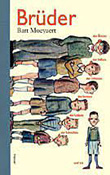

"There is a greater openness, the literature is more meddlesome and cheekier, because the children are taken seriously, one also wants to make them think, because that is part of growing up. That's how we live, that's how we write, that's how we draw" (Bart Moeyaert in Budeus-Budde, 2016)
Established
The Frankfurt Book Fair 2016 lead to a whole series of new translations of children's and youth literature from the Dutch-speaking world. Dutch-language children's and youth literature has definitively established itself on the literary market in Austria, Switzerland and Germany. Its presence has become a matter of course, its success and quality are no longer in question; on the contrary, Dutch children's and youth literature sets the tone. One could not wish for more.
(Herbert Van Uffelen)
References
Arbeitskreis Jugendliteratur: Der Hund, den Nino nicht hatte - Deutscher Jugendliteraturpreis. https://www.jugendliteratur.org/buch/der-hund-den-nino-nicht-hatte-4027
Arbeitskreis für Jugendliteratur e.V. (ed.): Deesje macht das schon. In: literaturfestival.com, Berlin (n. d.). https://www.jugendliteratur.org/buch/deesje-macht-das-schon-1001
bud: Vier Scheiben Glück. In: Süddeutsche Zeitung, Issue: Nr. 233, 10/11. Okt. (1998).
Budeus-Budde, R.: Man muss das Meer spüren. In: Süddeutsche Zeitung, Issue: Nr. 227, 30. Sep. (2016) - p. 15.
Ericke-Keidtel, Stefanie: „Es geht um was!“ : Kinder- und Jugendliteratur aus den Niederlanden und Flandern. Ein Gespräch mit dem Übersetzer Rolf Erdorf. In: Marisch.de, Hamburg, (2016). https://www.mairisch.de/2016/02/26/es-geht-um-was-kinder-und-jugendliteratur-aus-den-niederlanden-und-flandern-ein-gespr%C3%A4ch-mit-dem-%C3%BCbersetzer-rolf-erdorf/
Hanser: Man wird doch mal wütend werden dürfen. https://www.hanser-literaturverlage.de/buch/man-wird-doch-wohl-mal-wuetend-werden-duerfen/978-3-446-24677-5/?
Lettner, Franz: Eimerchen voll Meer. In: Süddeutsche Zeitung, Issue: 31, 7. Feb. (2009) - p. 20.
Lenz, Ramona: Warum nur tanzt der Miesepeter auf dem Dach? In: Frankfurter Allgemeine Zeitung, Issue: 3. May (2013). https://www.faz.net/aktuell/feuilleton/buecher/rezensionen/kinderbuch/rosie-und-moussa-von-michael-de-cock-warum-nur-tanzt-der-miesepeter-auf-dem-dach-12171248.html
Menzel, Hilde Elisabeth: Schön, dass du meine rote Ampel bist. In: Süddeutsche Zeitung, Issue: Nr. 303, 31. Dec. (2010) - p. 17.
Peter-Weiss-Stiftung für Kunst und Politik e. V. (ed.): Joke van Leeuwen. In: Internationales Literaturfestival Berlin, (n. d.). www.literaturfestival.com/autoren/autoren-2002/joke-van-leeuwen
Schweikart, Ralf: Gleiche Höhe ist kein Abseits. In: Die Zeit, Issue: Nr. 17, 18. April (2002).
Siggi, Seuss: Kinderliteratur aus den Niederlanden und Flandern – Mut zur Anarchie. In: Deutschlandfunk -Archiv, Issue: 15. Okt. (2016). https://www.deutschlandfunk.de/kinderliteratur-aus-den-niederlanden-und-flandern-mut-zur-100.html
Thuswaldner, Anton: Sechs beste Bücher. In: Salzburger Nachrichten, Issue: Nr. 139, 17. June (2000).
Perlentaucher: (https://www.perlentaucher.de/buch/toon-tellegen/man-wird-doch-wohl-mal-wuetend-sein-duerfen.html)
Jury report. Arbeitskreis Jugendliteratur: Der Hund, den Nino nicht hatte, (2016).
